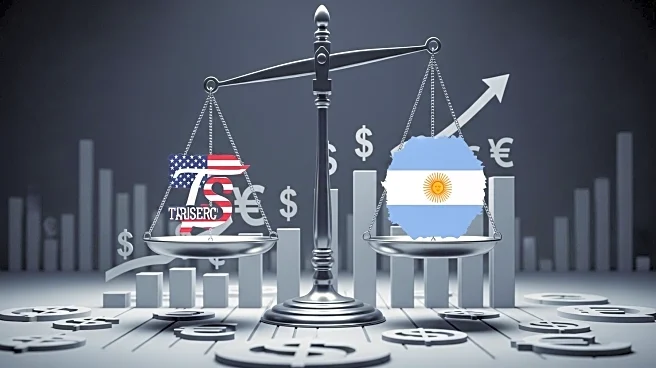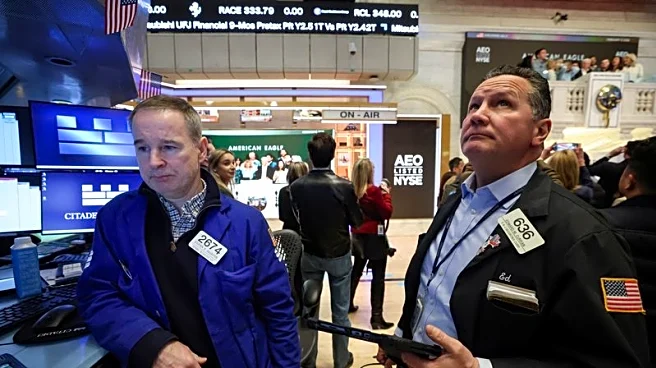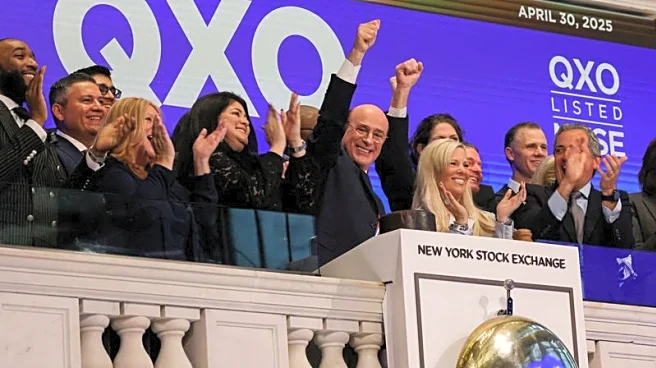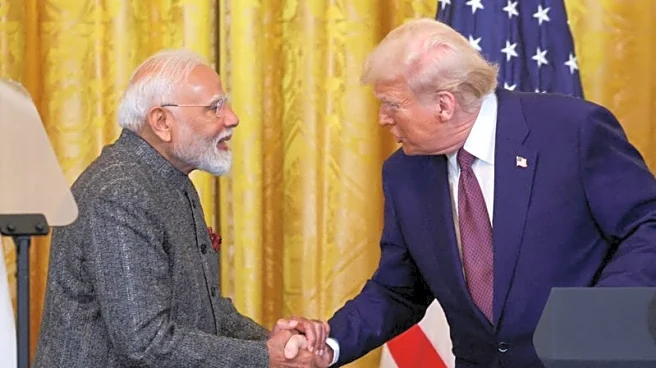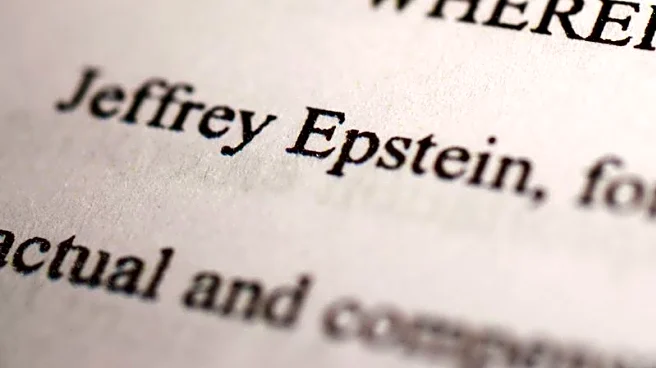What's Happening?
The U.S. Treasury, led by Secretary Scott Bessent, has announced negotiations with Argentina for a $20 billion currency swap aimed at bolstering the country's Central Bank reserves. This move is part of a broader strategy to support Argentine President Javier Milei's economic model, which faces challenges ahead of the October 26 legislative elections. The bailout includes the purchase of Argentine debt bonds and a significant stand-by credit via the Exchange Stabilization Fund. President Trump has expressed strong support for Milei, endorsing him for reelection despite the general election being over two years away. The U.S. aims to counteract Beijing's influence in the region by prioritizing the cancellation of a $5 billion Buenos Aires-China line. The announcement follows recent speculative attacks on Argentina's peso and bonds, which have raised concerns about economic stability.
Why It's Important?
The U.S. intervention is crucial for Argentina's economic stability, especially as it faces legislative elections that could impact market confidence in Milei's austerity measures. A victory for Milei could strengthen his reform agenda, while a defeat might lead to economic instability. The U.S. aims to limit China's regional influence by supporting Milei, aligning with broader geopolitical strategies. The announcement has already positively impacted Argentina's country risk index, indicating market optimism. This financial support could help stabilize Argentina's economy, benefiting U.S. interests by ensuring a friendly government in the region and potentially opening up new economic opportunities.
What's Next?
Negotiations for the purchase of Argentine debt bonds will commence after the October 26 elections. The outcome of these elections will significantly influence the direction of talks and Argentina's economic future. If Milei's party wins, it could lead to strengthened U.S.-Argentina relations and further economic collaboration. Conversely, a victory for Peronism could result in prolonged economic instability, challenging Milei's reform efforts and U.S. strategic interests. Stakeholders, including political leaders and financial markets, will closely monitor the election results and subsequent negotiations.
Beyond the Headlines
The U.S. support for Milei highlights the geopolitical dynamics in Latin America, where influence from major powers like the U.S. and China is a critical factor. The financial aid reflects the U.S.'s strategic interest in maintaining a foothold in the region, countering China's growing presence. This development could lead to shifts in regional alliances and economic policies, impacting long-term geopolitical stability and economic growth in Latin America.
